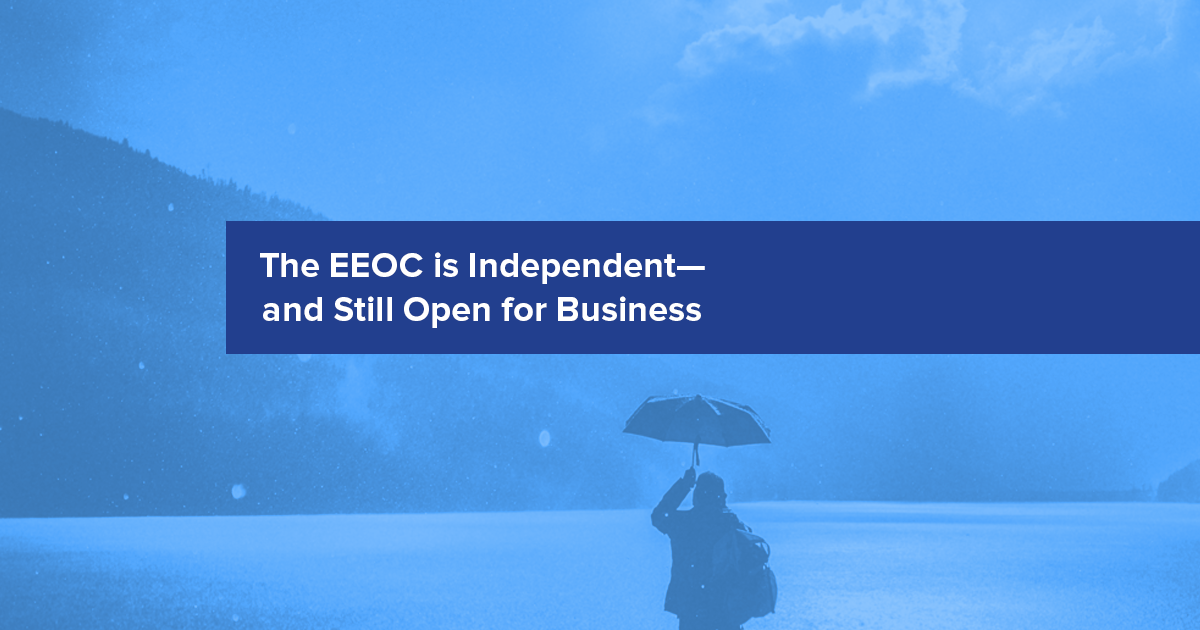The EEOC is Independent—and Still Open for Business

With President Trump and his anti-labor, anti-LGBT appointees threatening to roll back many critical protections for workers, for LGBT people, and for many marginalized communities, many people aren’t sure what the new administration means for people’s right to work without fear of discrimination or mistreatment. Many of us are justifiably concerned that the Trump administration will undo the incredible progress we’ve made around workplace discrimination over the past few years
While there are a number of things that the Trump administration might do to erode workplace protections, he can’t stop workplace nondiscrimination laws from being enforced—at least not for a while. Federal employment nondiscrimination laws are enforced by an agency called the U.S. Equal Employment Opportunity Commission, or the EEOC. The EEOC has been responsible for some groundbreaking work to protect people from discrimination on the job—including LGBT workers, formerly incarcerated workers, and workers with disabilities. Despite the presidential transition, this work could continue for months, or even longer. That is because, unlike most other federal agencies, the EEOC is an independent agency. EEOC commissioners are selected by the President, but cannot be directly controlled or fired by him. Each and every one of the commissioners who are currently serving support the landmark 2012 EEOC decision, Macy v. Holder, which said that the federal law that made it illegal to discriminate based on sex also applies to discrimination based on gender identity or trans status. There are five seats for the commissioners, meaning that President Trump will have to appoint three commissioners who oppose LGBT protections before he can reverse that majority. There’s one vacant seat for a commissioner that President Trump can fill now, but he’ll have to wait until July 2017 to fill the next one, and then until July 2018 to fill the third spot. Trump can also choose the agency’s General Counsel, but they won’t have any power to change the EEOC’s legal position—they only have a say about which cases the EEOC brings to court.
That means that the EEOC can continue its important work of investigating and resolving complaints of workplace discrimination in the coming months. Protecting LGBT workers continues to be a major priority for the EEOC. Last year, it received 1,768 complaints of discrimination against LGBT workers, and resolved 1,649 LGBT complaints—both record highs. This, together with support from most federal courts who have addressed transgender cases in recent years, means that people who face discrimination on the job will still likely have the EEOC and federal law on their side in the months to come. In fact, just this week, the EEOC filed a lawsuit against an Arizona restaurant for sexual orientation discrimination.
That’s not to say that the Trump administration can’t do big damage to worker’s rights, including LGBT workers—and we will fight hard to defend against any attacks that may come. But the bottom line is that the EEOC remains open for business and is there to help people who face discrimination at work get solutions. If you or someone you know has faced discrimination at work, see NCTE’s Know Your Rights Resource to find out how to file a charge with the EEOC, or get legal help.

